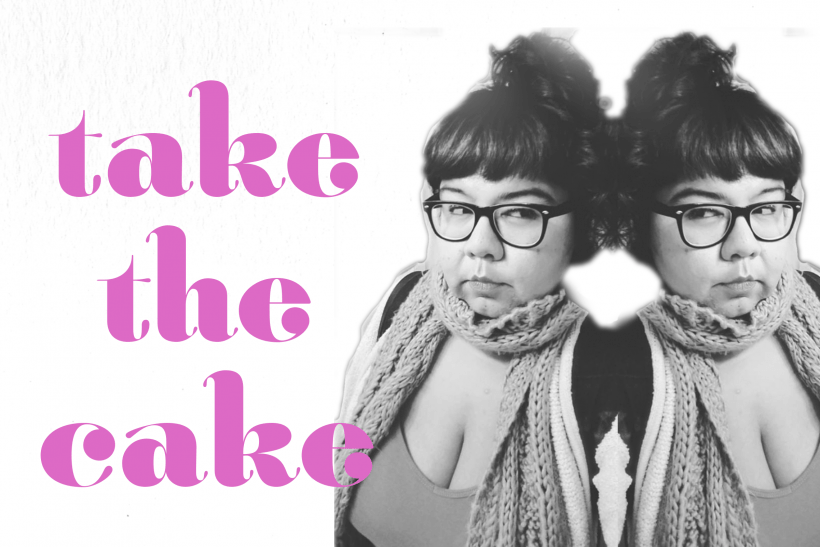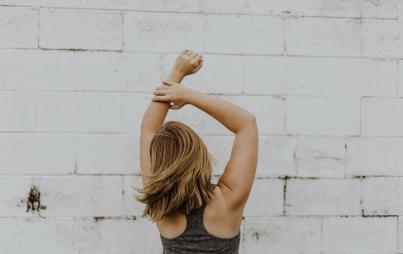
Why does self-love feel harder than dieting? Let's talk about it!
CW: Diet talk, weight cycling, fatphobia
I was talking with one of my Babecamp clients a few days ago about the emotional transition from diet mode (including active caloric and food restriction) to diet dropout mode (when you stop actively restricting). She was voicing a sentiment that I have heard many times before: even though she hated portion control, pathological exercise, self-loathing, and the overall never-ending drain that is Diet Culture Life™, that somehow it all felt easier than trying to build a road to self-love and self-acceptance.
I want to address that sense of ease head-on, and name it for what it is: a dirty lie.
Diet mode is not actually easier than self-love mode. In many ways, it is far more difficult, but there is one major difference in the way we experience the two modes, and I will get to that in one second.
So, let me just say it for the record: dieting is really fucking hard. It is both physically and emotionally taxing. Vigilantly monitoring all of your intake is really hard. Obsessing about every single bite is really hard. Weighing yourself frequently is hard. Waking up every day and worrying that you have gained weight and then panicking is hard. Having a closet full of clothes that doesn’t fit you is hard. Wearing clothes that are too tight is hard.
Thinking constantly about how everything you consume is going to either make your life better or worse is really hard. Organizing your day around your gym visit is really hard. Shaping your eating schedule around forbidden foods is really hard. The anxiety-based patterns that emerge from self-loathing and restriction mode are also really hard.
Self-love is also really fucking hard.
There is not a single path to self-love, and so you must become an engineer of that process. You’ve got to grapple with being confused and with navigating some really hard internal questions. Sometimes self-love requires that we radically restructure our lives and our relationships. We have to set boundaries. We have to feel lots of uncomfortable things, like anger and sadness and grief and rage. Dropout mode requires that we ask more of ourselves and of others, and that can feel deeply vulnerable.
You’ve got to create or find language for all these new feelings and needs. Add to that the fact that the faction of dropouts is much smaller than dieters. So self-love might lead to a sense of cultural isolation.
But the integral difference between the former and the latter? Dieting is culturally supported, streamlined and subsidized and self-love is not.
We often don’t realize it, but difficulty is frequently gauged through whether or not there is structural support for our desired pursuit. We do a lot of very difficult things that are structurally supported – like marriage, buying a home, getting married, having babies, social security, elections, building, maintaining roads, and, yes, dieting — and it's harder to see those processes as difficult because of the cultural resources that go into structurally streamlining them.
You Might Also Like: Why The "You Have To Love Yourself First" Rule Is True
Getting people to divest from the diet industry is certainly a difficult task, but if I had $64 billion (the estimated total size of the weight loss industry in 2014) and the support of mass media I bet I could make a dent.
Though there’s no way to tell for certain, I would argue there’s a good chance that ending individual investments in the diet industry would not actually require more resources or infrastructure than all the resources and infrastructure that are required to maintain it. But ending the diet industry would ultimately degrade many other systems — sexism, racism, ableism, classism — that are required to maintain the culture as we know it. We know that when individuals feel good about themselves they make worse consumers. Hence the lack of buy-in from the culture at large.
Ending investment in the diet industry has very little structural support and so the perception of that task’s difficulty is magnified. Diet culture is both very personally difficult and very resource-intensive but because there are many structures that maintain diet culture behaviorally and financially there is a perception that it is less laborious when, in fact, I would argue that it is not.
I encourage you to think about all the very, very difficult things that you do regularly and ask how many of them simply seem easier because the culture ideologically or financially supports them. Practicing self-love or dropping out of diet culture might feel super difficult, but when you break down the time, money and spiritual investment that you’ve given to diet culture over time, is it really easier to stay in diet mode or is the ease merely a perception?
Related:
-
Take The Cake: Dear Fat Girl, Do You Know How Powerful You Are?
-
How The Spanish Word For "Fat" Helped Me Treat My Body Like A Friend
-
6 Things Chronic Illness Has Taught Me About Self Love








